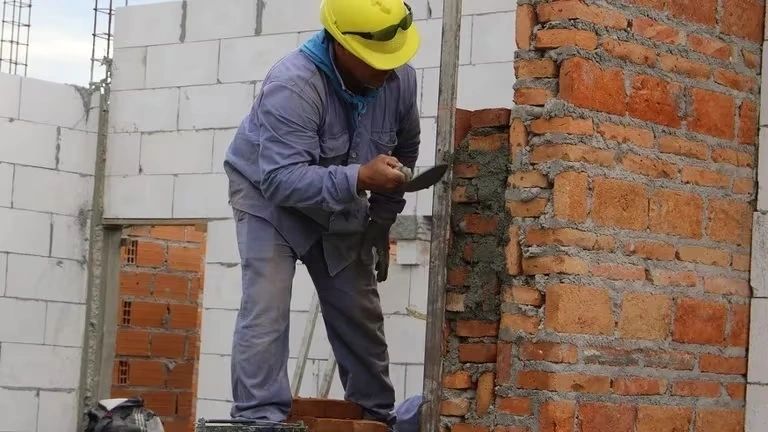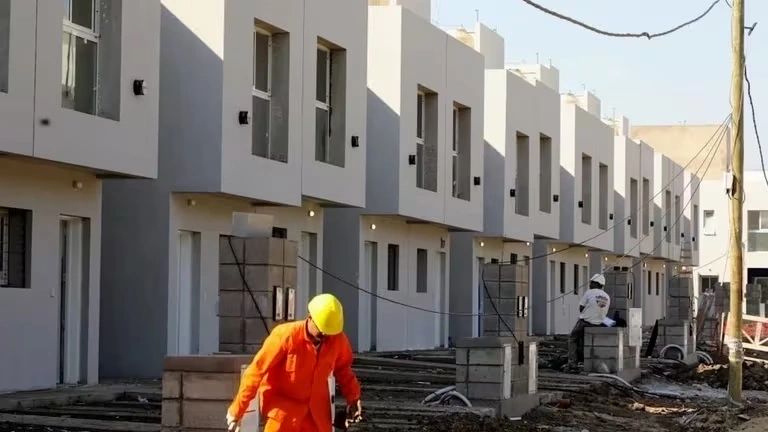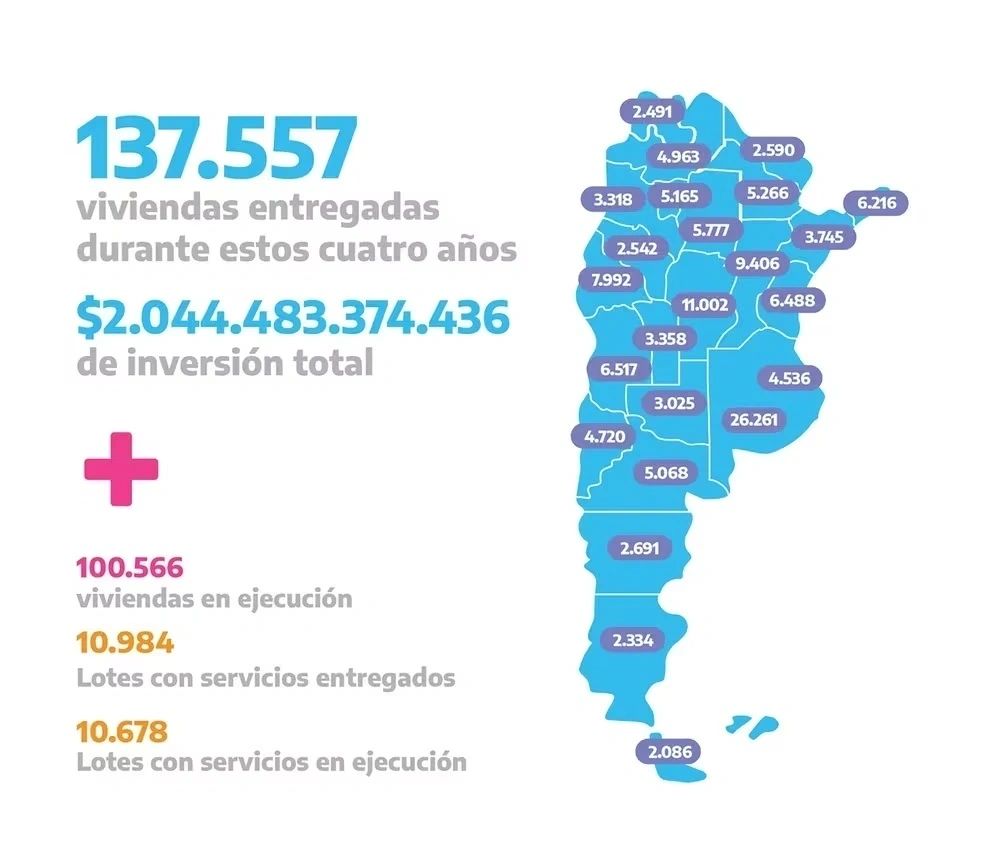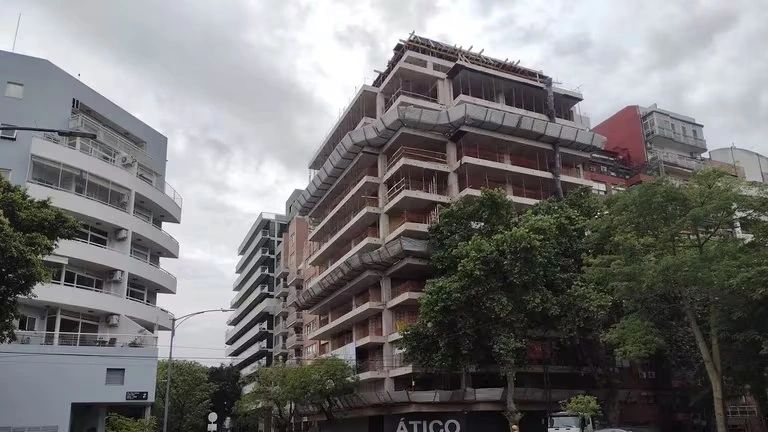BuySellBA
Administrator
Housing construction: Javier Milei's proposal and the challenges for the sector
December 3, 2023The works in execution under the management of the Ministry of Territorial Development and Habitat. Uncertainty in the provinces and municipalities. The Chilean model
By José Luis Cieri

Currently there are nearly 150,000 workers working in housing construction in the public sector. The objective is that jobs are not lost and that positions grow in the coming years
One week after the inauguration of President-elect Javier Milei, uncertainty persists in the construction sector regarding the fate of the 100,566 units under construction throughout the country under the management of the Ministry of Territorial Development and Habitat of the Nation.
As anticipated by the libertarian leader, this portfolio will change its nature to become a Secretariat or Undersecretary, although it has not yet been completely defined. It is also not clear if it will be under the purview of the Ministry of Human Capital, or of Infrastructure.
The intention is that the majority of the homes under construction would be completed but perhaps would no longer have 100% state financing. One possibility is that they be given to families who want to buy them. This change would turn them into private works, ensuring the continuity of employment and reaffirming the commitment that no one be left without work.
From the Argentine Chamber of Construction (Camarco) they told Infobae that the works currently in charge of the National Treasury are carried out through current contracts that must be respected.
The simple completion works, with a completion period of up to 12 months, are estimated to have an average staff of 1.5 workers for homes of 55 square meters.
The impact on employment in each region of the country is very significant. “For simple completion works, with a completion period of up to 12 months, such as those carried out by the Ministry of Habitat, it is estimated that they have an average staff of 1.5 workers for homes of 55 square meters. This allows us to estimate that around 150,000 registered workers currently work directly, Camarco detailed.
A challenging situation may occur if it is estimated that the provinces and municipalities will not be able to assume the non-automatic expenditures that the Nation decides to suspend. Until now, the Housing Plan was advancing, adequately accruing what was authorized by the 2023 national budget, with payments in reasonable terms.

In Procrear II Urban Developments there are 17,000 homes under construction
The president-elect's statements referring to an abrupt cut in public works set off alarms in the sector because the contractor carries out work in one month, certifies it and approves it in the next and is paid in up to 60 or 90 days. “Not recovering the investment made in November could mean the bankruptcy of the medium and small companies that execute those contracts. This explains the decisions of some companies to paralyze or slow down work and lay off staff,” reported the entity chaired by Gustavo Weiss.
The Heritage
From the Ministry of Territorial Development and National Habitat headed by Santiago Maggiotti , they highlighted that in the 4 years since Alberto Fernández presided over the government, many advances were achieved.Although Argentina's housing deficit remains at almost 4 million homes (many to be repaired and others so that society can access its own roof)
From the portfolio that has been in force since December 11, 2019 and is taking its final steps, the Federal Casa Propia Program was created, which works together with provinces and municipalities -without any political distinction- to provide housing solutions, and also through the Credits program. Own House loans were provided at zero rate to build if you had your own space.
“Also, through the Reconstruir Program, we reactivated works that had been paralyzed between 2016 and 2019, which allowed not only more families to have their home but also employment to be generated and local economies to be motorized,” Maggiotti told Infobae.

Source: Ministry of Territorial Development and Habitat of the Nation. Here you can see the number of housing solutions already delivered, the housing works and lots in progress
On the other hand, the Procrear Program was relaunched, creating Urban Developments throughout the country and, in addition, the National Urban Land Plan, which allowed the generation of thousands of Lots with Services, so that more families can build their home there.
Santiago Maggiotti clarified: “Another point is that we replaced the UVA Credits that the previous government created with the Casa Propia Index, which allowed people who were granted a loan to not be charged month after month with a fee that became unpayable. , generating unsustainable debts.”
The management that assumes in a few days receives more than 100,000 works and 10,678 lots with services ready to build
Specifically, the management that it assumes in a few days receives more than 100,000 works and 10,678 lots with services ready to build. In addition to 17,000 turnkey homes in Procrear II urban developments that average 65 m2.
The trans-Andean system
In recent days there were meetings between representatives of La Libertad Avanza, and sectoral entities such as Camarco, the Association of Housing Entrepreneurs and the Business Chamber of Urban Developers, as well as maintaining links with representatives of the Construction Workers' Union of the Argentine Republic, because among the workers there is concern about that phrase of the elected president Javier Milei where he stated in an interview that: "in his Government public works will be cut because there is no money" and that "the initiatives that are already underway must "The mayors will finish them with the help of the private sector and to do so they will have to look for their financing sources."In the interior of the country, hundreds of works are being carried out by public organizations, such as provincial housing institutes and municipalities.
Also when Milei was a candidate he had said that the country was going to advance in a “Chilean-style public works model.” The question arises about how the model works in trans-Andean land.
In Chile, two systems coexist for the execution of public works: bidding and concessions.
The bidding system, similar to that of Argentina, involves searching for companies for specific tasks, choosing the winner through a lottery based on project and suggested price, and paying directly to the private company hired.

In the city of Buenos Aires, more than 50,000 homes continue to be built thanks to private impulse. Specialists maintain in this part of the segment everything is progressing according to plan.
Meanwhile, the concession system implies that the State gives the private sector the responsibility of generating investment, defining priorities. In exchange for executing works, the private sector obtains the right to exploit the investment.
For example, when building a highway, you might have the right to collect tolls for 20 or 35 years. At the end of that period, the State can assume the service or initiate a new tender for its operation and maintenance. This approach raises complexities, since the exploitation criterion is based on whether it is a profitable investment for the private sector, which does not always align with the needs of society.
Doubts in the private sphere
Experts from the housing sector told Infobae that they doubt whether this proposal can be carried out, because the public works model in Chile faces criticism, especially related to the question of how to address necessary but unprofitable projects.According to Javier Milei, “if a project is not profitable for the private sector, it should not be carried out, since using public funds on unprofitable projects is perceived as a detriment to citizens.”
Infrastructure plays a crucial social function. However, in remote or island areas with lower demand, companies may encounter unprofitable projects, requiring state intervention to guarantee essential services.
The libertarian scheme plans, once the Leliq bomb is disarmed, that three million families can access bank credit to build a home
The libertarian scheme plans, once the Leliq bomb is disarmed, that three million families will be able to access bank credit to build a home, expand it, repair it or provide it with basic services. No less than 10,000 neighborhoods need to improve their infrastructure and more than 200,000 multifamily buildings need to be repaired.
It is also considered vital to reduce inflation as a means of channeling savings towards boosting credits for works without public spending. “Facilitating the acquisition of public housing by families would not only ensure the continuity of construction during the transition to private works, but would also stimulate the generation of employment, benefiting the sector and encouraging the creation of new jobs,” they reported. libertarian leaders who will work in the housing area.
www.buysellba.com

